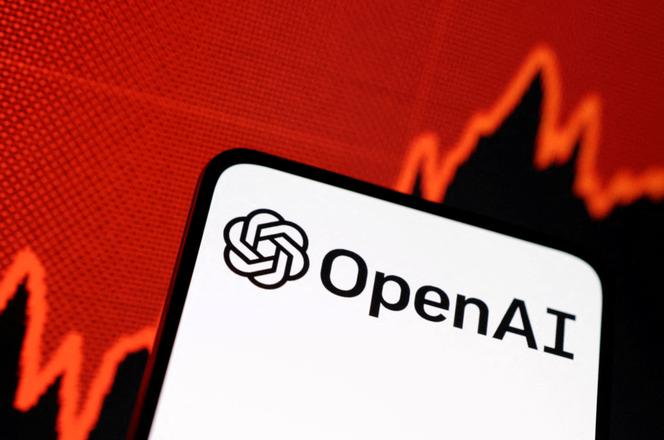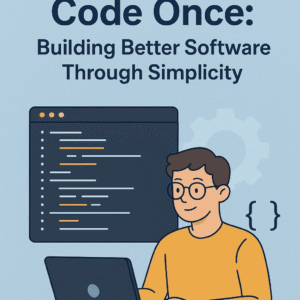OpenAI has signed a $38 billion, seven-year partnership with Amazon Web Services (AWS), officially ending its long-standing exclusivity with Microsoft Azure. The move marks a major strategic shift toward a multi-cloud infrastructure model, giving the artificial intelligence leader greater flexibility and scale as it pushes the limits of next-generation AI systems.
Announced on Monday, the deal will provide OpenAI with access to hundreds of thousands of NVIDIA GPUs and the ability to scale to tens of millions of CPUs through AWS’s data centers. The full capacity is expected to be deployed by the end of 2026, setting the stage for one of the largest compute expansions in AI history.

“Scaling frontier AI requires massive, reliable compute,” said Sam Altman, CEO of OpenAI. “Our partnership with AWS strengthens the broad compute ecosystem that will power this next era and bring advanced AI to everyone.”
Market Response and Strategic Impact
The announcement immediately sent Amazon’s stock soaring by nearly 5%, adding roughly $140 billion to its market value and pushing it to an all-time high. The agreement also represents AWS’s largest-ever AI infrastructure partnership, placing it back in the spotlight after months of speculation that Amazon was falling behind its cloud rivals in the AI race.
Under the deal, OpenAI will leverage AWS’s cutting-edge clusters featuring NVIDIA GB200 and GB300 GPUs, deployed through Amazon EC2 UltraServers. These high-performance systems offer low latency and high bandwidth, enabling both large-scale model training and inference tasks for tools like ChatGPT and DALL·E.
AWS CEO Matt Garman said the partnership reflects AWS’s unique ability to provide immediate, scalable, and optimized compute power for AI workloads.
“The variety and immediate availability of optimized computing resources illustrate why AWS is uniquely suited to support OpenAI’s extensive AI workloads,” Garman noted.
For AWS, this collaboration reinforces its ambition to be a core infrastructure provider for the world’s most advanced AI applications. For OpenAI, it signals a bold move to diversify its infrastructure and ensure redundancy and scalability in its operations.
The End of Microsoft Exclusivity
While OpenAI’s new deal with AWS breaks Microsoft’s exclusive hold, it does not end their collaboration. Microsoft remains one of OpenAI’s most important partners and investors, holding a 27% stake in the OpenAI Group, which is now valued at around $135 billion.
Microsoft has also pledged to purchase an additional $250 billion worth of Azure cloud services from OpenAI over the next several years. However, the exclusive cloud agreement, which gave Microsoft first rights to host OpenAI’s workloads, expired earlier this year.
This change allows OpenAI to pursue a multi-cloud approach, distributing its workloads across multiple providers to maximize speed, reliability, and cost efficiency.
| Partner | Agreement Value | Key Focus | Duration |
|---|---|---|---|
| AWS (Amazon) | $38 billion | Multi-cloud AI infrastructure | 7 years |
| Microsoft (Azure) | $250 billion (services commitment) | Ongoing cloud partnership | Multi-year |
| Oracle, AMD, Broadcom | Part of $1.4 trillion compute investments | Hardware and data integration | 2025 onwards |
The table above highlights how OpenAI is strategically spreading its compute load to build a more resilient infrastructure network capable of supporting the next generation of frontier AI systems.
A Shift to a Multi-Cloud Future
The AWS deal follows OpenAI’s recent corporate restructuring, which converted the company into a public benefit corporation (PBC). This change grants it greater operational freedom to pursue partnerships with multiple tech companies—without being limited by Microsoft’s former “first right of refusal” arrangement.
OpenAI’s multi-cloud move also mirrors a broader trend across the AI industry, as companies seek to balance competition and collaboration among major cloud providers. Analysts suggest that OpenAI’s diversification could reduce dependence on any single vendor and improve overall resilience in the face of growing global demand for compute power.
Industry observers have called this one of the largest single AI infrastructure commitments ever made. Combined with its other partnerships, OpenAI has now allocated approximately $1.4 trillion in computing investments for 2025 alone, spanning collaborations with AWS, Microsoft, Oracle, AMD, and Broadcom.
Redefining the AI Infrastructure Race
This partnership cements AWS’s position back at the center of the global AI ecosystem, where competition between the cloud giants has intensified. Microsoft, Amazon, and Google are each racing to secure AI startups and foundational model developers as anchor clients.
The OpenAI AWS $38B multi-cloud deal 2025 marks a turning point — one where the AI pioneer is no longer tethered to a single cloud provider. Instead, it is building a flexible and diversified infrastructure capable of sustaining its expanding suite of models and services across the globe.
As Sam Altman summarized, “We are entering a new era of scale — one that requires collaboration across the entire cloud ecosystem to deliver safe, powerful AI to everyone.”
References:
- About Amazon – AWS and OpenAI Announce Multi-Year Strategic Partnership
- CNBC – OpenAI Signs $38 Billion Compute Deal with Amazon
- Le Monde – OpenAI Signs $38 Billion Deal with Amazon’s Cloud Giant AWS
- Business Wire – OpenAI and AWS Multi-Cloud Collaboration Details

